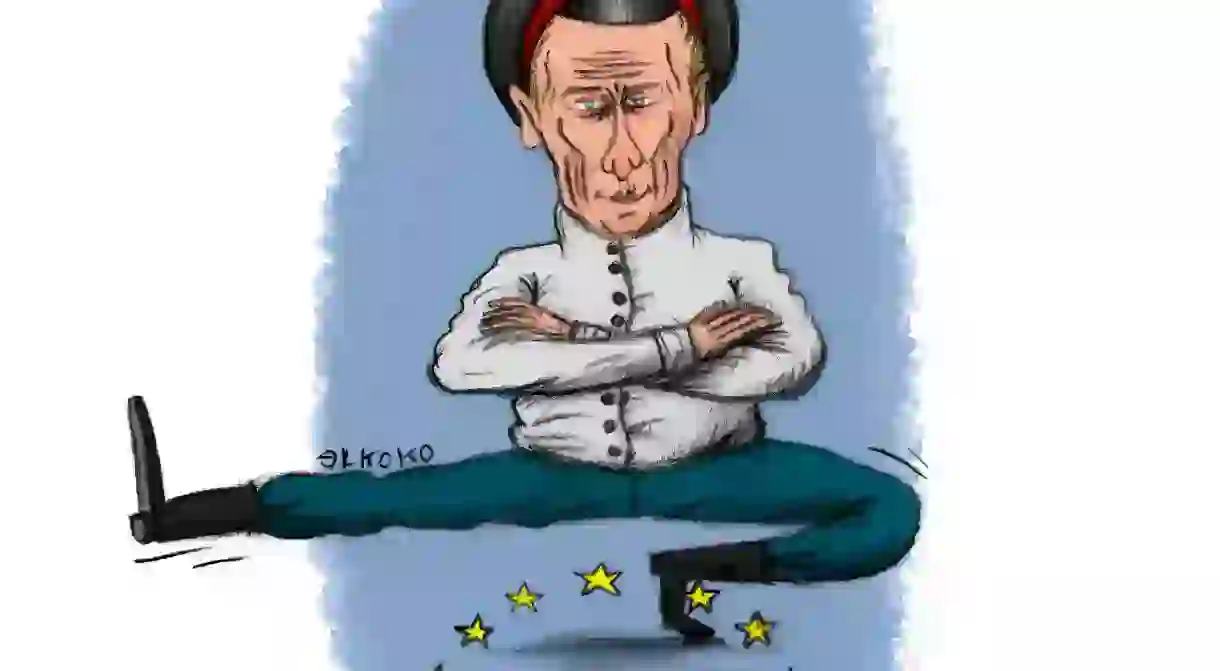Why Don't Russians Smile?

Russia is known for its merciless winters, but the slow transition to spring is anything but gorgeous. White snow turns to brown slush, frozen dog waste thaws and icicles come crashing down from buildings. Eventually, things become green, but there’s one thing that never seems to melt—the Russian frown.
The Russian anti-smile and it’s reason for existing has always puzzled visitors to the Motherland. Someone who has never lived in Russia might chalk it up as a physical reflection of life where the weather is tough and kale smoothies are hard to come by. Those fluent in the Russian language might relate the old proverb, “Only a fool smiles for no reason.” But, perhaps, the answer is neither of these.
Kuba Krys, a psychologist at the Polish Academy of Sciences, published a paper that explores “uncertainty avoidance,” a scale that measures a country’s instability. Krys suggests that in politically-oppressed countries with high uncertainty avoidance, such as Russia, people smile less because they have bigger things to worry about than if the eggs in the supermarket are cage-free.
However, the country’s political history might also play a role. Communist propaganda from the early days of the Soviet Union showed the archetypal U.S. imperialist as fat, wide-eyed and drooling over piles of money he ripped off from the working class. The Soviet citizen, by contrast, was lean and muscular and laboring over a bale of hay or frowning stoically in refusal to vodka and imperialist mind control. Remember in middle school how the teacher became suspicious if she saw you with a random smile on your face? It’s a similar concept in Russia.

Adrian White, a psychologist at the University of Leicester, created a world map of happiness and proposes that a country is happy if it has adequate health, wealth and access to education. Russia flunks White’s index, coming in at No. 167 among the 178 countries surveyed. (Denmark, Switzerland and Austria were the three happiest.)
Russians abhor the common stereotype that they are all doom and gloom about their lives. In fact, Russians get loads of state holidays, and they use that free time to celebrate life with friends and loved ones. Visit any Russian home during the eight-day New Year’s holiday, and you’re bound to see a lot of smiles—probably more than you know what to do with.













